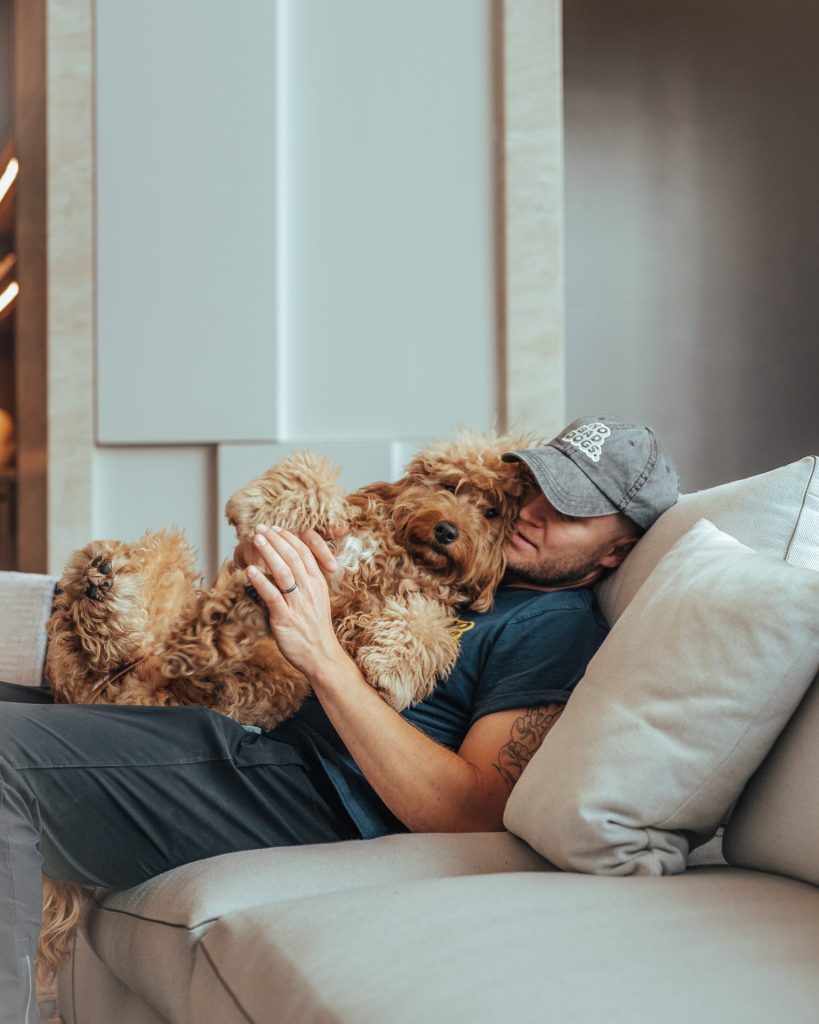When it comes to resolving behavioral difficulties in our beloved furry companions, professional dog training is a game changer. Dogs, like humans, can have a variety of behavioral issues that can interrupt their everyday lives and strain their relationships.
Aggression and nervousness, as well as excessive barking and destructive behavior, can be irritating and difficult to handle.
Professional dog trainers can help with this learning process. They can provide the essential direction and teach the training strategies to help dogs overcome these issues and live happier, healthier lives using their skill and knowledge.
We will look at seven typical dog behavioral difficulties and how expert dog training classes, trainers and instructors can provide effective remedies.

The importance of proper training for dogs
We all adore our pets, but let’s be honest: they can drive us insane at times. This is when appropriate dog training comes into play. Training your dog is more than just teaching charming new tricks, like shaking paws or playing dead (though those are remarkable too! ), it’s about building a well-behaved and balanced dog who can live in harmony with you and society. So put on your training hat and join us as we explore the world of professional dog training.

Professional dog trainers are armed with a variety of expertise and strategies for dealing with behavioral difficulties and transforming your pup into a well-mannered companion. They can guide you through the often choppy waters of dog training and give tips to keep the puppy in you from chasing your puppy- tail in frustration.
Behavioral Issues Solved by Professional Dog Training
1. Establishing Leadership and Communication: Professional Dog Trainer
Effective communication techniques for dog owners
Establishing leadership and efficient communication between owners and their animal friends is an important element of professional dog training. Dogs are pack animals by nature, and they thrive in environments with a clear leader to guide them.
Dog owners may lay a solid basis for training and behavior modification by acting as confident and consistent leaders.
Professional trainers may advise you with tips and tricks on how to assert leadership in a positive and loving manner that will win your dog’s respect and trust.
Communication is also essential in dog training. Because dogs do not speak the same language as humans, it is critical that we discover ways to effectively communicate our expectations.
Professional trainers may teach dog owners how to deliver clear messages and encourage desirable actions by using body language, tone of voice, and positive reinforcement.
2. Addressing Aggression and Reactivity: Professional Dog Trainer
The most concerning behavioral issues that many dog owners confront are aggression and reactivity. Understanding the various types of aggression and reactivity, such as fear aggression, leash reactivity, territorial aggression, and resource guarding, is essential for devising successful techniques for managing and changing these behaviors.
Professional trainers can assist dog owners in identifying triggers and developing behavior modification strategies that target the source of the aggression.
Dogs can learn to overcome their aggressive inclinations and respond to circumstances in a calm and controlled manner by using a balanced training approach, education, and desensitization approaches.
Remember that professional dog training is about more than just resolving behavioral difficulties; it’s of course also about developing a deep bond and mutual understanding between you and your four-legged companion. So, don’t be hesitant to seek expert assistance with behavior problems and restore harmony in your home. It’s time to wag those behavioral issues away and enjoy the company of a well-behaved dog-behaved and happy dog!
3. Curbing Excessive Barking and Whining: Professional Dog Trainer
Is your dog always barking at anything that moves or whining for attention? Excessive vocalization can be a bothersome habit, but understanding why it happens might help you solve it. When dogs are bored, agitated, seeking attention, or reacting to external stimuli such as other animals or noises, they may bark or whine.
To properly address this behavior, it is critical to determine the underlying cause.
While some barking and whining are normal, it’s critical to teach your dog when to quiet down.
Professional dog training can teach you efficient ways to reduce excessive vocalization. Desensitizing your dog to stimuli, refocusing their attention, praising calm behavior, teaching a “quiet” command, or offering mental stimulation to keep them occupied are all possibilities.
Physical and mental exercise is also crucial for your dog or puppy to learn to relax and be quiet when their owner needs them to be!
4. Dealing with Separation Anxiety and Destructive Behavior: Professional Dog Trainer
When left alone, does your dog grow agitated, destructive, or exhibit undesirable behaviors? This could indicate separation anxiety.
Dogs and puppies suffering from separation anxiety may exhibit excessive whimpering, barking, chewing, digging, or even attempting to flee. It is critical to identify these behaviors as signals of boredom rather than misbehavior.
Professional dog training can offer effective strategies to help alleviate separation anxiety and destructive behavior caused by it.
These methods often involve gradually desensitizing your dog to being alone, providing mental stimulation through puzzle toys, creating a safe and comfortable space for them, and rewiring a healthy relationship with your dog.
With patience and consistent training, your dog can learn some more tips and tricks to feel more secure and cope better with your absence.
5. Overcoming Leash Pulling and Jumping: Professional Dog Trainer
Tired of being pulled down the street every time you go on a stroll with your dog? Leash pulling can be an aggravating and even dangerous behavior.
Professional dog training courses can assist you in learning the basics of teaching your canine companion to walk politely on a loose leash while walking out. Loose leash training classes, rewarding desired behavior, and teaching a Heel command can all help you and your dog enjoy stress-free walks.
Professional dog training can help with common behavioral concerns like as jumping on humans or straining on the leash.
Teaching your dog alternative behaviors to jump, such as obedience, basic commands, or learning new skills such as sitting or presenting a paw, and reinforcing such behaviors with rewards or praise, are examples of training strategies. Techniques such as educating your dog to focus on you and using suitable equipment can make walks more enjoyable for both of you.
6. Resolving Fear and Anxiety Issues
It’s awful to witness our furry pals suffer from anxiety and terror. When dogs are worried or fearful, they may exhibit symptoms such as trembling, excessive panting, hiding, or even violence. Recognizing these symptoms is critical for dealing with their mental well-being.
Professional dog training approaches assist dogs in overcoming fear and anxiety. Desensitization, counterconditioning, and building positive connections with triggers that make your pooch uncomfortable are all possibilities.
Your dog or puppy can be trained to sit and learn to feel more secure and confident in different places by progressively introducing them to fearful circumstances while rewarding calm behavior.
7. Managing Hyperactivity and Impulsivity
Do you have a dog who seems to have an infinite supply of energy but struggles to stay focused? Hyperactivity and impulsiveness can make training and daily living difficult for both you and your pet. Understanding the underlying reasons for these behaviors is critical for developing successful treatments.
Professional dog training strategies are available to help hyperactive or impulsive dogs regulate and redirect their extra energy.
Mental stimulation activities are a crucial part to managing your dog’s energy. This includes crate training lessons, obedience training lessons, impulse control exercises, and structured physical activity lessons are examples of these strategies. You may assist your dog in becoming more balanced and attentive by giving them appropriate outlets for their energy and teaching them self-control.
Professional dog training has various advantages for both dogs and their owners. Dogs can become well-adjusted and obedient companions by treating behavioral difficulties through effective training methods such as creating leadership, controlling aggressiveness, managing separation anxiety, and conquering fear and anxiety.
Professional dog training also equips owners with the information and skills needed to properly connect with their pets, developing a stronger bond and creating a happy living environment.
Professional training not only eliminates behavioral concerns but of course also improves the entire quality of life for both dogs and of course their owners, assuring a happy, fun, and rewarding connection for the pup for years to come.
For more information visit our site https://www.upstatecanine.com
Also you can visit our shop for your dog essentials, visit No Bad Dog.
